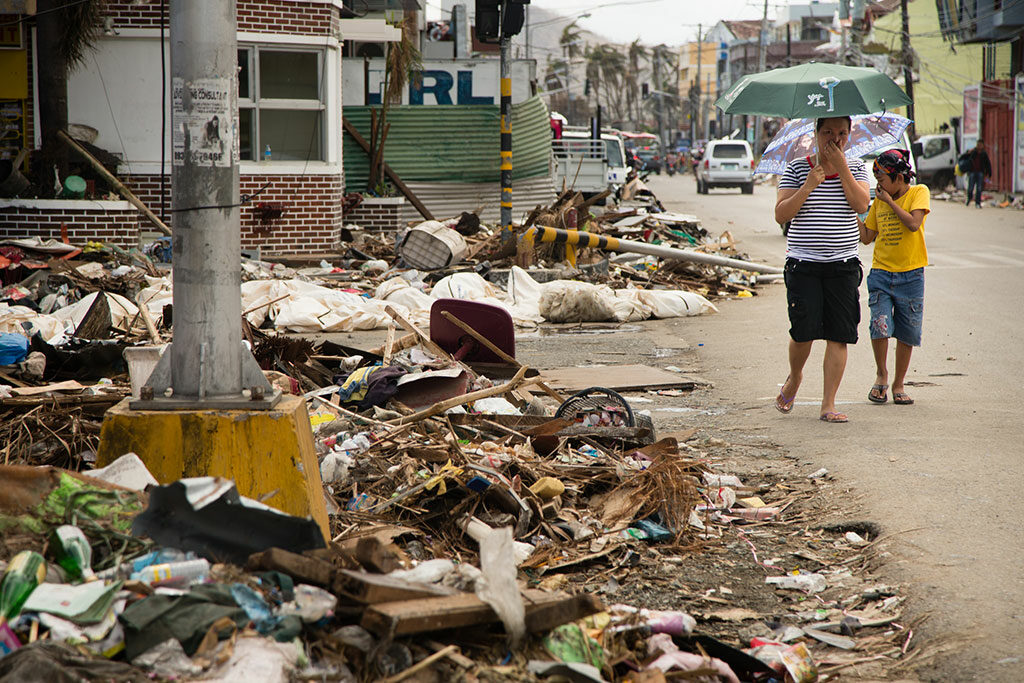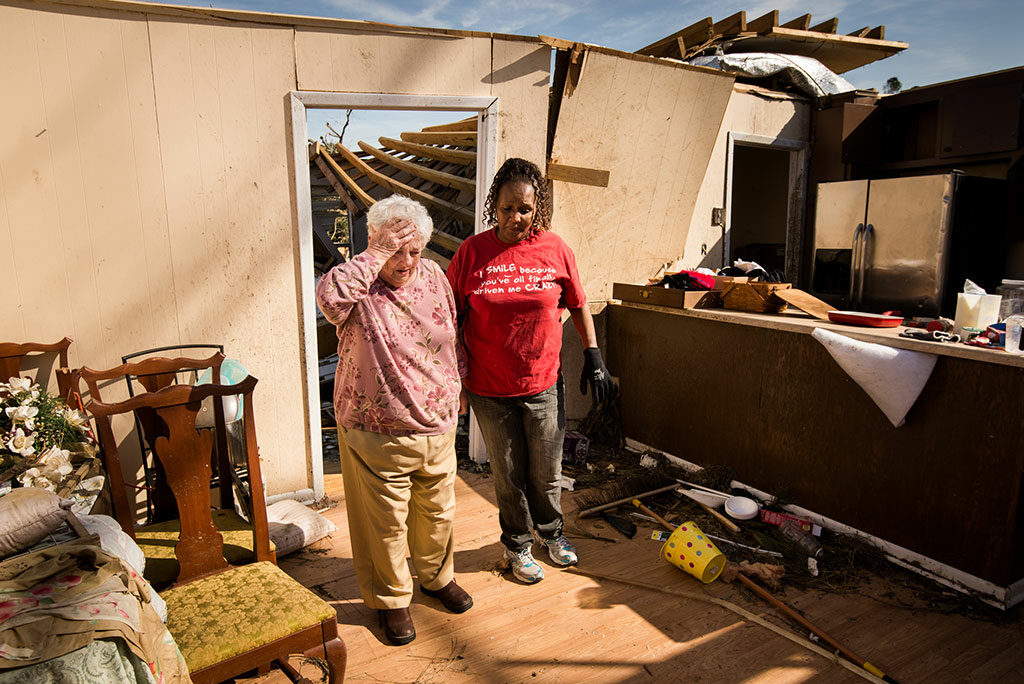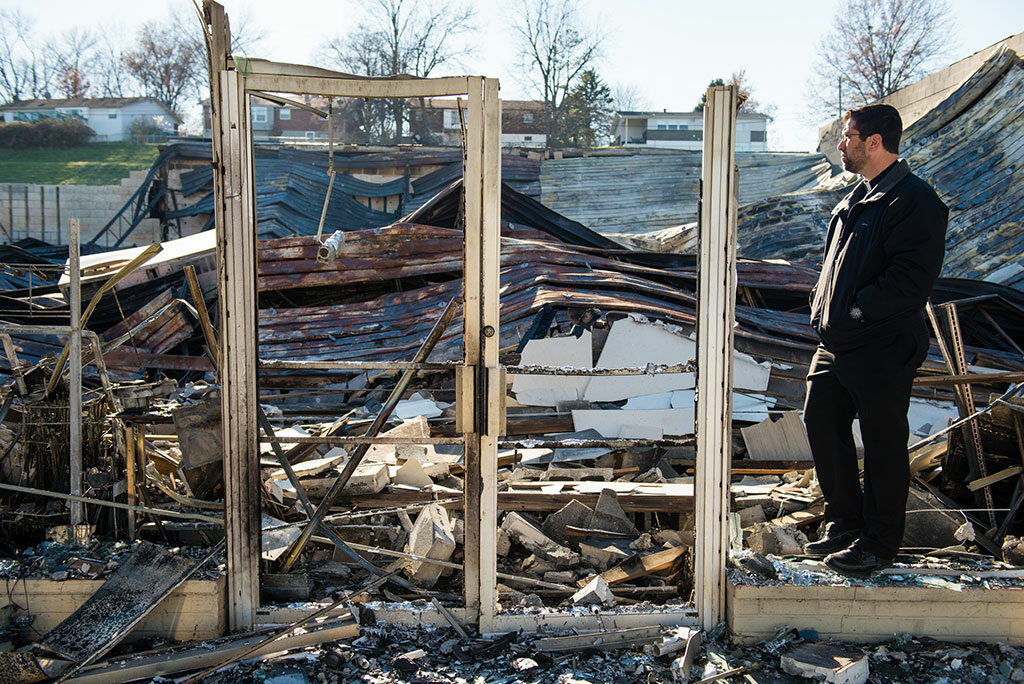
When bad things happen, it is natural and normal to wonder, why is this happening? It’s also common to wonder, what did I do to earn or deserve this? Was it something I did or said? Sometimes we want to know why bad things happen to good people.
It’s important to realize that contrary to what popular culture says, people are not spiritually good or deserving of God’s favor in and of themselves. In fact, the Bible constantly reminds us that we are sinners even after conversion (see Rom. 7:13–23). The Bible says, “For all have sinned and fall short of the glory of God” (Rom. 3:23). The Bible also says, “For the wages of sin is death” (Rom. 6:23). We confess in the Divine Service that we “justly deserved” God’s “temporal and eternal punishment” (LSB 184).
There will always be aspects of our all-knowing, all-powerful and all-loving God that we as humans will never understand. We should not assume that God doesn’t care, and we should not demand that God explain His actions to us. Rather, we should trust in His love even if we don’t understand what is happening to us or around us. It is because of God’s love for you that He is at work redeeming you and saving you from yourself. This love is clearly evident in God sending His Son to die on the cross to pay for your sin, so that one day you will be rescued from this world of tragedy and live in the perfection of heaven.
In times of trouble, instead of trying to speculate about God’s nature or demand that God do our will, we should repent. In Luke 13, Pilate slaughters the pious Galileans. It was an evil action against undeserving people. Yet Jesus in Luke 13:3 told the people to repent, saying, “Unless you repent, you will all likewise perish.”
Jesus did not justify or explain Himself or why evil was happening; rather He told them to repent. Repentance is humbling, and it moves you from being self-centered to trusting in God’s goodness and mercy. It turns you as a sinful person away from your pride to reliance on your almighty and all-loving God who does not always give you explanations except “I am who I am” (Ex. 3:14), “For my thoughts are not your thoughts, neither are your ways my ways, declares the Lord” (Is. 55:8) and, as St. Paul explains, “Will what is molded say to its molder, ‘Why have you made me like this?’” (Rom. 9:20).
Why does God allow suffering?

Suffering is a result of sin and the fall. God never wanted Adam and Eve to fall into sin. God explicitly warned them about the eating of the tree and the consequences if they did. However, they chose to sin against God, and ultimately sin and brokenness entered the world. As soon as humanity fell into sin, your loving God began His work of redemption (see Gen. 3:15). From the fall until the final day, there will be suffering and sin. However, your loving God is actively rescuing you from sin, death and the devil in ways that you do not realize.
It is always best to put our faith in what is revealed to us about God: that He loves us, He died for us and He rescues us from brokenness and sin. Everything that is necessary for us to know about God and salvation is clearly revealed in Holy Scripture.
If something bad happens to me, is God punishing me for my sin?

When something bad happens to you, it is not necessarily related to a particular sin that you have committed. However, it is always because we live in a sinful and broken world (Genesis 2–3). In this world, our bodies betray us, and we get sick and die. In this broken world, other people also betray us and cause us a great deal of problems and misfortune. Often times, we endure personal agony because of the sinful choices that we ourselves make (see Psalm 51). And at times, we are spiritually attacked by the devil and his demons, who like to harass people and cause misery and misfortune (see Job).
What do I do when I feel like my life is falling apart?
- Prayer is always good when you feel overwhelmed by the world.
- Attend the Divine Service where you receive the ongoing forgiveness of sins and you are reminded that Christ is bodily present with you in a special way.
- Consider talking to your pastor to get wise Christian advice when you are overwhelmed.
- Consider talking to a pastor for private confession and absolution (see 1 John 1:9).
- Use your suffering as a reminder that you live in a broken world and that Christ promises to suffer right along with you.
- Place your hope in Christ and the resurrection and not in this world or in sinful people who will disappoint you.
Can anything good come out of bad things?

God often allows amazing things to come out of tragic situations (see Gen. 50: 15–21). Job was eventually blessed after his time of tragedy (Job 42:10). However, there is no promise that you will always directly see or understand the good that comes out of particular trials and tribulations. In times of tragedy, it is important to trust in God’s nature, that He is a loving and caring heavenly Father who is watching over you. In times of tragedy, we see God’s mercy in action. God’s mercy revealed to humanity is most clearly seen in the person of Jesus Christ who reminds us that we are reconciled to our heavenly Father and that there is nothing that can separate us from the love of God that is found in Christ Jesus (Rom. 8:38–39).